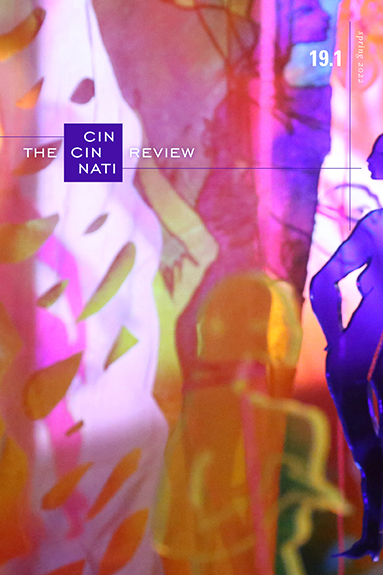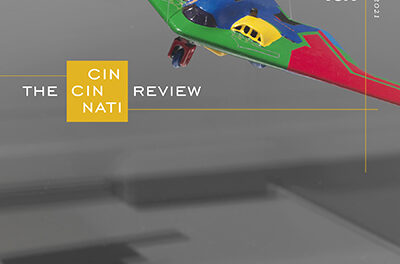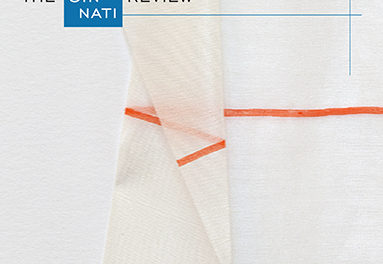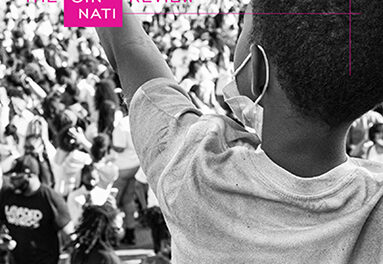The Sentence
My father’s heart exhausted itself. Cardiac arrest, the cardiologist said.
A man was arrested in my Ugandan village when I was a child. A few years later he was released, only to steal and get sentenced again. Release can mean its opposite—”stretch out again” from Latin. Acquire back. So, this catch-release-and-release went on for many years. To my young mind, arrest never meant final. One could always return after completing a sentence.
My father died in the middle of a sentence. My brother was strapping him into the car when my father asked, “Is this how . . .”
Still, they drove to the hospital, and the doctor passed the sentence.
After I heard the news, it hung in my room like a caged dragon. Even when I opened the window, the suspended sentence stretched and gulped the air before I could breathe. I tried to swallow the news, but it sat heavily in my throat.
To be sentenced is death. A chapter closes on one’s life as we know it, as we’ve known it. I am reluctant to say that my father “passed away.” That sounds final and suffocates hope. I prefer “passed on” or “transitioned,” since the latter allows me to imagine him elsewhere, proceeding, making his way on a nice patch of green. Perhaps farming, which he loved. Spared, as in passed, which is different from ceasing to exist. One could argue that this is merely semantics, but what of the memories, feelings, thoughts, and experiences that assure me that he continues to live in my heart, where I have set him a permanent stool?
But first, I refused his death.
Dreams of My Parents
I woke up on May 1 and saw five missed calls from my brother Erasmus. This is not good, I thought. Drink a glass of water before you call back. I was in Denver, Colorado, a month left until graduation. Two weeks prior, I’d successfully defended my dissertation. A month before that, I’d signed a contract to be an assistant professor at UNC Asheville, and I was eager to begin in fall 2016. Things were looking good. I’d talked with my dad about him coming to my graduation. I wanted us to celebrate together. He was very happy and excited for me. “I’ll be with you,” he said, and for the first time, he told me that during Idi Amin’s presidential rule, he had won a scholarship to advance his studies at Ohio State University, but he couldn’t go because Amin had banned all teachers from leaving the country, fearful of brain drain if they did not return. “Who knows,” my father added, “maybe after getting a master’s I too would have proceeded with a PhD. But you did that for me.”
Until then, it had not occurred to me that I was pursuing some of my father’s dreams. In my field, psychology, we are told that our subconscious contains the unlived goals of our parents, much like how our DNA contains the survival instincts of all our ancestors. My first master’s degree was in organizational psychology, and I remember my mother telling me that she also had had an opportunity to pursue a master’s in education in Ireland. Then she found out that she was pregnant with me and deferred. Soon after me there was another child. With a total of six kids to raise, she abandoned any idea of further studies. When she said, “You got this for me,” I protested vehemently and told her to keep her dreams to herself because I had mine to accomplish.
I must have been afraid that I would not know myself, that I would not distinguish my individual motivations from those of my parents if I accepted the weight of their unfulfilled hopes on my small shoulders.
After my father revealed his tucked-away secret, I wanted more than anything else for him to board the plane he never got a chance to, from Uganda to the States. “We’ll drive to Ohio, and you’ll see your campus,” I said, high on hope. “Funny,” I went on, “I was admitted to Ohio University, just an hour from Ohio State, but opted for the program in Denver.” The year of acceptance into PhD programs was an abundance of riches I did not know how to deal with. All three of my wonderful choices said yes, and I fretted about which one to accept.
Remembering that, I asked him, “Dad, when and how do we know we’ve made the right choice?”
He narrated the story of how he’d chosen my mother. I’d heard it a million times.
“You know, I had six girlfriends.”
“Dad—”
“I invited them home and served roasted corn on the cob. Then I asked them to tell me which corn I should eat. The first said, ‘Aren’t you an adult? Pick for yourself.’”
I laughed because I saw myself in that one.
“The second said, ‘I don’t know.’ The third, too, could not decide. The fourth . . . but your mother, she held the tray and looked carefully at all the corn, then picked out the one I would have selected for myself.”
“Very helpful, Dad.”
“Tell me, how did you decide?” he asked.
“There was a blue sky the day I visited the campus. The bluest baby blue—I wanted to hug it.”
It was his turn to laugh.
I did not mention the John Denver songs we both loved, which played a part as well. After weighing all the pros and cons on my spreadsheet, I had chosen not a program but a sky. Perhaps I knew that all three programs were great and would adequately facilitate my studies; there was no wrong or right one, so the challenge was mostly about my capacity to be in touch with the deeper content of my subconscious, a kind of knowing that is as elusive as it is difficult to articulate.
Cat on a Roof
I returned my brother’s call via WhatsApp. After the usual pleasantries, he mentioned how Dad had not been feeling well, had left our home in Kabale for checkups at the Heart Institute in Kampala. He was staying with our brother Emmanuel because our sister Mabel, who normally took care of our father at her home when he was in Kampala, was away attending a wedding . . . on and on, uttering each sentence carefully—I did not interrupt him. I knew right away that he was talking about a cat on a roof: a shared family anecdote. It goes like this:
Two brothers lived with their mother in a small African village. The eldest had a cat, which he left in the care of his sibling in order to pursue greener pastures abroad. Years later the younger brother telephoned and told his sibling that the cat was dead. The older brother was devastated and angry.
“Couldn’t you have cautiously prepared me?” he asked, amid sobs.
“How?” the younger brother replied.
“You could have said, ‘Well, the cat went up on a roof. It was sunning itself; you know how cats are. Something must have scared it. Suddenly it jumped and landed on the ground rather badly and injured itself. We gave it a glass of milk and tried our best to revive it, but—unfortunately—the cat is no more.’”
The younger brother apologized. Years passed, and then one day he dialed his sibling.
“You know,” he began, “our mother went up on the roof . . .”
“Stop, stop,” his older brother shouted. “She’s dead, isn’t she?”
Truth is, none of us can put off the inevitable. It’s soothing when the harshest blow is delivered with thoughtful kindness, but no matter what, pain still comes—numbness, tears, and other violent emotions. It’s difficult to break a heart softly.
When you live far from home, you learn to categorize calls into two groups: the cat on the roof, and then the rest. Nowadays, depending on how vulnerable I feel when I answer the phone, I can quickly cut in after the greeting and ask: is this a cat-on-the-roof story? If the person at the end of the line can admit it, then I have a choice to say, “Okay, go on” or “Give it to me straight.” That way, we can both be spared a lengthy agony. When I’m less prepared, I take the chance to fetch a glass of water, sit in a chair I can lean back in, and take a deep breath, knowing well where the story is heading.
. . .










